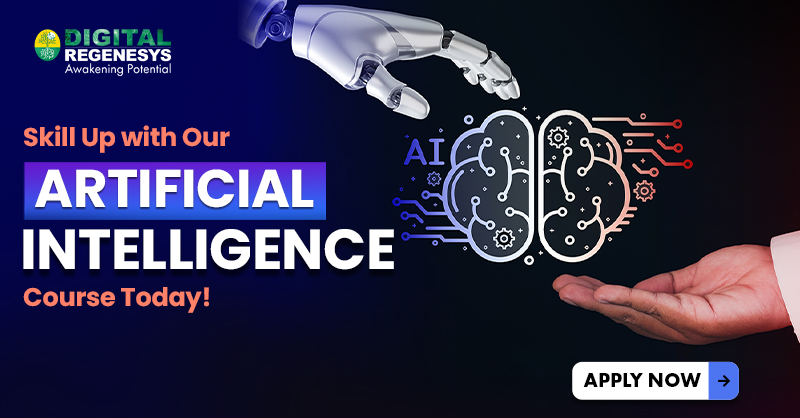8 Benefits of Machine Learning

Machine Learning (ML) is one of the most impactful technologies driving innovation today. It allows systems to learn from data and improve performance without explicit programming. From healthcare and retail to finance and education, ML is shaping the way organisations operate and people interact with technology.
Its importance lies in solving problems more quickly, making predictions with greater accuracy, and delivering more intelligent user experiences. These capabilities explain why machine learning continues to be a driving force in the digital economy.
In this blog, we will explore eight key benefits of machine learning and how they are transforming industries worldwide.
8 Benefits of Machine Learning
Machine learning has become one of the most impactful technologies of our time, driving innovation across industries and enabling businesses to operate smarter and faster. By allowing systems to learn from data, identify patterns, and make predictions without explicit programming, machine learning empowers organisations to achieve greater efficiency and accuracy.
These advantages extend from daily operations to long-term strategy, making it an essential tool in the digital era.
Let’s explore some of the key benefits of machine learning in detail.
1. Improved Decision-Making
Organisations make countless decisions daily, from predicting sales to managing risks. Machine learning strengthens this process by analysing vast amounts of data in seconds. It identifies hidden patterns and relationships that are difficult for humans to detect, leading to informed strategies and better outcomes. With ML, businesses move away from guesswork and towards decisions backed by evidence.
The following are the key benefits of ML in decision-making:
- Data Analysis at Scale: ML quickly processes massive datasets that would take humans weeks to analyse.
- Predictive Insights: It forecasts trends such as customer demand or financial risks with high precision.
- Bias Reduction: Decisions become more objective by relying on patterns in data rather than human judgment alone.
- Competitive Edge: Faster and more accurate insights give companies a strategic advantage.
Read more – How to Start Studying Artificial Intelligence?

2. Automation of Repetitive and Complex Tasks
Many businesses spend significant resources on repetitive, rule-based tasks that drain productivity. Machine learning automates these processes, handling them faster and with fewer errors.
Beyond simple work, it also manages complex operations such as anomaly detection in banking or predictive maintenance in manufacturing. Automation allows employees to focus on creativity and strategy.
The following are the key benefits of automation through machine learning:
- Process Automation: Repetitive tasks like document scanning and email sorting are completed more efficiently.
- Smart Monitoring: ML systems monitor real-time activities such as financial transactions to detect issues instantly.
- Error Reduction: Automated processes minimise human errors and increase accuracy.
- Cost Efficiency: Businesses save money by reducing manual effort while improving performance.
3. Enhanced Personalisation
Personalisation is no longer optional; it is expected by customers across industries. Machine learning enables this by studying user interactions, purchase history, and preferences to create tailored experiences.
From personalised shopping suggestions to custom playlists, ML keeps users engaged and satisfied. Personalisation not only improves customer loyalty but also boosts sales and conversions.
The following are the ways ML enhances personalisation:
- Targeted Marketing: Businesses deliver promotions aligned with customer interests.
- Content Recommendations: Streaming platforms suggest relevant shows, songs, or videos.
- Customer Engagement: Personalised interactions make users feel valued.
- Sales Growth: Tailored product suggestions increase purchases and repeat customers.
Get insights on Why Study Artificial Intelligence?
4. Predictive Analytics and Forecasting
Machine learning provides powerful predictive capabilities by learning from historical data. This allows organisations to forecast outcomes such as customer demand, stock fluctuations, or health risks. Predictive analytics ensures businesses are better prepared to face challenges and capture opportunities before they arise.
The following are the key benefits of predictive analytics with ML:
- Demand Forecasting: Retailers anticipate product needs to optimise inventory.
- Risk Management: Financial institutions predict defaults and identify potential fraud.
- Healthcare Predictions: Doctors forecast disease risks for better preventive care.
- Strategic Planning: Businesses allocate resources more effectively with accurate forecasts.
5. Improved Customer Support
Providing high-quality customer service is essential for business success. Machine learning improves support through chatbots, virtual assistants, and automated ticketing systems that learn from each interaction.
Customers receive immediate, accurate responses at any time of day. Over time, these systems become more intelligent, creating faster and more satisfying experiences.
The following are the ways ML improves customer support:
- Instant Assistance: AI chatbots provide 24/7 service to common queries.
- Personalised Solutions: Support systems adapt to customer preferences.
- Scalability: Thousands of queries can be handled simultaneously.
- Lower Costs: Businesses reduce staffing needs while improving efficiency.
Know more about Types of Machine Learning in Artificial Intelligence.

6. Fraud Detection and Security
Digital transactions and online activities are vulnerable to fraud and cyberattacks. Machine learning strengthens security by analysing behaviour patterns and spotting unusual activity in real time.
Unlike static systems, ML adapts to evolving threats, making it harder for malicious activities to go undetected. This helps build trust among customers and stakeholders.
The following are the key benefits of ML in fraud detection and security:
- Real-Time Detection: Fraudulent transactions are flagged immediately.
- Adaptive Defence: ML evolves with new types of cyberattacks.
- Reduced False Alerts: Models distinguish genuine activities from threats with greater accuracy.
- Stronger Protection: Safeguards sensitive customer and company data effectively.
7. Scalability and Efficiency in Operations
As organisations grow, managing operations becomes increasingly complex. Machine learning provides scalability by processing large datasets without requiring proportionally larger resources. It ensures that businesses remain efficient, even during rapid growth. From logistics to customer data management, ML adapts to increased demands seamlessly.
The following are the benefits of scalability enabled by ML:
- Efficient Processing: Handles larger datasets with speed and accuracy.
- Cost Reduction: Saves money by optimising processes as demand increases.
- Flexible Operations: Easily adjusts to business growth or seasonal demand.
- Support for Expansion: Enables smooth scaling into new markets or industries.
8. Driving Innovation Across Industries
Machine learning is more than a tool; it is a driver of innovation. From healthcare breakthroughs to smart cities, ML is fuelling advancements that were once impossible. By enabling creativity and experimentation, ML supports the development of solutions that improve lives and reshape industries.
The following are the ways ML drives innovation:
- Healthcare Innovation: ML enables faster drug discovery and precise diagnoses.
- Smart Transportation: Self-driving cars rely on ML for safety and navigation.
- Education Advancements: Adaptive learning platforms personalise teaching methods.
- Sustainability Solutions: ML supports energy efficiency and waste reduction.

Future of Machine Learning Benefits
The benefits of machine learning are continuously expanding as technology evolves. In the future, we can expect even greater advancements in areas such as artificial intelligence governance, ethical AI, and integration with technologies like quantum computing. Businesses that adopt ML today will be better positioned to take advantage of these opportunities tomorrow.
The following are the expected benefits of future ML advancements:
- Greater Accuracy: Enhanced models will deliver more precise results.
- Ethical Applications: Responsible AI practices will ensure fair outcomes.
- Cross-Industry Integration: ML will become standard across all sectors.
- Advanced Collaboration: Human-machine partnerships will become more seamless.
Conclusion
Machine learning has proven to be a transformative force, reshaping industries worldwide. From decision-making and automation to fraud prevention and innovation, ML provides benefits that touch nearly every aspect of modern life.
For learners and professionals eager to grow in this field, structured education is essential. The Artificial Intelligence Certificate Course at Digital Regenesys includes machine learning as a core module, equipping learners with practical and theoretical skills.
To explore more learning opportunities,visit Digital Regenesys today.
Last Updated: 6 October 2025
